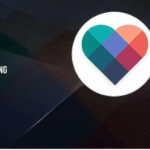The landscape of women-owned businesses has been evolving rapidly in recent years, and by 2025, it is expected that the role of women in entrepreneurship will continue to expand. This surge is not only a result of societal changes, but also due to the supportive role played by government initiatives. With a variety of grants and loans available, women entrepreneurs now have access to financial resources that were once out of reach. This article explores the types of support available, how women business owners can benefit, and what the future holds for government-backed funding for women entrepreneurs.

Women-Owned Businesses in 2025
| Support Type | Description | Official Link |
|---|---|---|
| Grants for Women | Funding that does not need to be repaid. Often geared towards startups or expanding businesses. | Government Grants |
| Small Business Loans | Loans with favorable terms for women entrepreneurs. Often backed by government agencies. | SBA Loans |
| Microloans | Small loans typically provided to women-owned businesses in their early stages. | Microloan Program |
| Specialized Programs | Programs targeting women in specific industries such as technology, agriculture, and healthcare. | SBA Women’s Programs |
In recent years, governments have recognized the immense potential of women entrepreneurs and have started rolling out programs that provide both financial and educational resources. By 2025, these initiatives are expected to grow even further. Let’s look at the different types of government-backed financial support available.
Types of Financial Support for Women Entrepreneurs
Grants for Women-Owned Businesses
Grants are an essential tool for business owners, as they do not need to be repaid. The government offers several grant programs for women entrepreneurs to help them either start or expand their businesses. These grants can be used for a variety of business needs, such as:
-
Research & Development: Innovating new products and services.
-
Expansion: Scaling operations to new markets.
-
Hiring: Increasing workforce to meet business needs.
While grants are highly competitive and require clear, compelling business proposals, they can provide a strong financial foundation without the burden of repayment.
Small Business Loans
Small business loans are available through government programs, such as the Small Business Administration (SBA). These loans typically offer lower interest rates and longer repayment terms than standard bank loans.
Women entrepreneurs can benefit from:
-
SBA 7(a) Loan Program: Offers funding up to $5 million, with repayment periods up to 25 years.
-
SBA Microloan Program: Provides loans up to $50,000 for small, early-stage businesses.
-
504 Loan Program: Offers funding for long-term investments in fixed assets, such as property or equipment.
These loans make it easier for women to get access to capital to grow their businesses, with fewer requirements than traditional financing options.
Microloans for Startups
Microloans are smaller loans, often provided by nonprofit organizations, and are especially useful for women entrepreneurs in the early stages of their businesses. The government’s SBA Microloan Program is one such initiative that supports women by offering loans up to $50,000.
These loans can be used for:
-
Working Capital: Funding daily operations.
-
Equipment Purchase: Buying the necessary equipment for business growth.
-
Inventory: Stocking up on inventory to meet demand.
Microloans typically come with lower interest rates and more lenient qualification criteria, making them an accessible option for many women looking to get their businesses off the ground.
Specialized Government Programs
Some government programs focus specifically on women entrepreneurs in certain sectors. These programs offer grants, loans, or mentorship tailored to specific industries, such as:
-
Women in Technology: Programs designed to foster innovation and entrepreneurship among women in tech.
-
Women in Agriculture: Financial support for women involved in farming, food production, and agriculture-related businesses.
-
Women in Healthcare: Funding options for businesses that are focused on healthcare and wellness.
These specialized programs often provide additional support through mentorship, networking, and industry-specific resources.
The Future of Government Support for Women Entrepreneurs
By 2025, government support for women-owned businesses is expected to continue growing. The increasing recognition of women’s contributions to the economy will likely result in more accessible funding options, lower barriers to entry, and enhanced resources for scaling businesses.
One significant trend is the continued rise of gender-specific financial programs, which will offer even more tailored solutions to women entrepreneurs. Furthermore, digital tools and platforms for applying to grants and loans are becoming increasingly user-friendly, making it easier for women across the country to access resources.
Challenges Women Entrepreneurs Face
Despite the growing support, there are still challenges women face when accessing government grants and loans. These include:
-
Competition for Grants: With limited funds available, it can be challenging to win a government grant.
-
Knowledge Gaps: Understanding the nuances of applying for grants and loans can be difficult without adequate guidance.
-
Bias in Lending: Women, particularly women of color, still face discrimination in traditional lending practices, despite government support programs.
Conclusion
The future of women-owned businesses is looking bright, with increasing support from government-backed financial programs. Whether it’s through grants, small business loans, or microloans, women entrepreneurs have more opportunities than ever to turn their business dreams into reality. As these programs continue to evolve by 2025, women will find even more accessible and tailored resources to help them grow and succeed.
FAQs
What types of government loans are available for women entrepreneurs?
There are various types of loans available, including SBA 7(a) loans, SBA microloans, and 504 loans. These loans offer favorable terms such as low-interest rates and long repayment periods.
How can I apply for government grants as a woman entrepreneur?
You can apply for government grants through platforms like Grants.gov, where you can search for grants specific to women entrepreneurs and submit your application.
What are the advantages of microloans for women-owned businesses?
Microloans are a great option for women entrepreneurs starting small businesses. They offer smaller loan amounts with lower interest rates, flexible terms, and simpler application processes compared to traditional loans.
Are there specialized programs for women in certain industries?
Yes, there are government programs specifically for women in sectors like technology, agriculture, and healthcare. These programs often provide funding, mentorship, and networking opportunities tailored to those industries.
Click here to know more.









